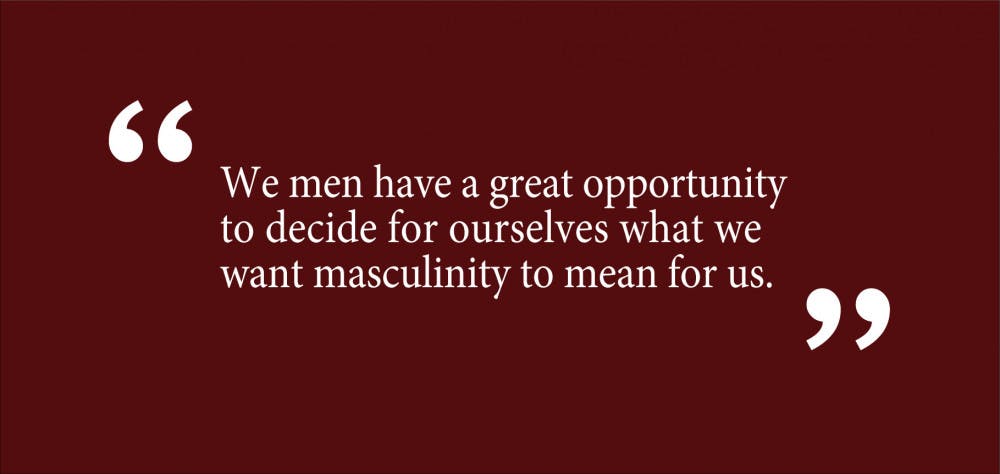In a previous column for The Herald, I called for a men’s revolution: a dramatic shift in our definition of masculinity. Since then, more people seem to have come on board with the project of reexamining traditional manhood. Even so, many men seem unsure about how to move forward. It is ultimately up to individual men to decide for themselves what this new masculinity should look like. In this column, I am making a case for one possible version of this masculinity. In my vision, men are more in tune with their emotions and feel comfortable communicating them with others, they put more emphasis on self-care and they are unafraid to discard gendered trends in expressing themselves. A redefinition of masculinity will benefit men themselves as well as society at large.
Many social critics today argue that masculinity is in crisis. In the Atlantic, journalist Alia Wong explores expert opinions on various versions of masculinity. Importantly, this crisis stretches across demographics. One researcher highlights how the crisis pertains to white, heterosexual men, who feel that their positions of power in society are under threat. Another notes effects of the crisis on Black boys, who are the victims of “damaging norms” and therefore don’t receive the support that they need. The experts Wong cites also say that many men agree that there are problems with traditional masculinity, but they lack a coherent vision of how to alleviate them. But there is no better time than now to come up with new forms of masculinity for ourselves.
My first suggestion is that men should work to be more adept at interpersonal communication. We should be able to express our thoughts, feelings and emotions clearly — to say what we mean and mean what we say. Young men, in particular, are largely taught to avoid communicating about personal matters with others, especially when it comes to emotions. Because of this training, men can inadvertently prevent themselves from forming deep and meaningful relationships. And additionally, by not communicating effectively, men can place an unfair responsibility on others to try to understand them.
Encouraging young men to be more open about their thoughts and emotions will ease the burden on others who communicate with them. But more importantly, it will benefit the men themselves. In an environment where men feel empowered to communicate their feelings with others, they will be more likely to seek out help for themselves. Psychological literature consistently documents how men suffer from a prevailing stigma around mental health and particularly from societal expectations of unfailing strength and stoicism. It is therefore especially important for men to learn to embrace various self-care practices — which can include going to therapy. Notably, men make up only around a third of all people in the United States who go to therapy. Taking the time to speak with a professional about what might be causing stress or uncertainty has several benefits that men should — and deserve to — take advantage of.
Through communicating more effectively and prioritizing self-care, men may very well start to realize for themselves what matters to them and, more broadly, who they are and want to be. To foster this development, we need to create space for men to express themselves beyond the constraints of gendered aesthetic expectations. Men may opt to express themselves through their external appearance, such as with fashion and accessories. This form of self-expression is exemplified by the increasing trend of men painting their nails, sometimes with elaborate nail art.
To be clear, I’m not arguing that men painting their nails will single-handedly free men from the bounds of restrictive masculinity. In fact, taking just one of these suggestions by itself is insufficient: A man who paints his nails to reject norms around masculinity can still, through his ineffective communication, end up demanding uneven emotional labor from the women in his life. In taking on the task of crafting new ideals of manhood, we men must make sure we are actually doing the work — both externally and internally. It’s not an easy task to shift societal norms with deep historical roots; doing so requires an intentional effort on our part.
We men have a great opportunity to decide for ourselves what we want masculinity to mean for us. The vision of masculinity I have put forth here is by no means the only option, and I encourage other men to come up with their own ideal visions of masculinity. But I do hope that, as we develop our ideas, we keep the common end goal in mind: allowing men to live healthy and authentic lives.
Quentin Thomas ’21 can be reached at quentin_thomas@brown.edu. Please send responses to this opinion to letters@browndailyherald.com and op-eds to opinions@browndailyherald.com.





